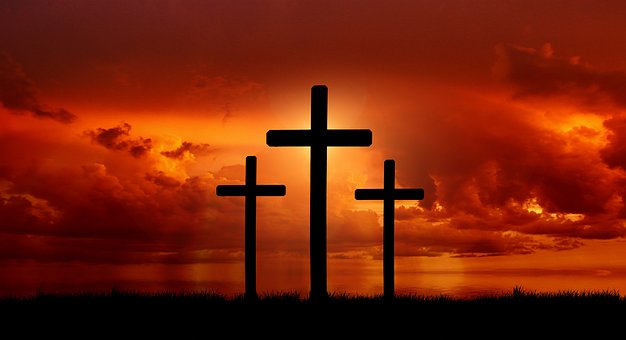Good Friday is one of the most important Christian holidays, marking the crucifixion and death of Jesus Christ. It is a solemn day of reflection and mourning for believers all over the world. This article will provide a detailed overview of the history, significance, and observance of Good Friday.
Table of contents
The Significance of Good Friday
Good Friday is a significant day in the Christian faith because it commemorates the crucifixion and death of Jesus Christ. Jesus was betrayed by one of his disciples, Judas Iscariot, and handed over to the Roman authorities. He was then tried, found guilty, and sentenced to death by crucifixion.
The crucifixion of Jesus is seen as the ultimate sacrifice made by him to save humanity from sin. According to the Bible, Jesus willingly accepted his death and did not resist, but instead prayed for his executioners, saying, “Father, forgive them, for they do not know what they are doing” (Luke 23:34).
The crucifixion took place on a hill outside of Jerusalem called Golgotha, or Calvary, which was a common place for executions at the time. Jesus was nailed to a wooden cross and left to die. His death is seen as the ultimate act of love and devotion to humanity, and it is remembered every year on Good Friday.
History of Good Friday
The history of Good Friday can be traced back to the early days of Christianity. According to the Bible, Jesus was arrested on the night of Holy Thursday and brought before the Roman governor, Pontius Pilate. Pilate found Jesus guilty of blasphemy and ordered him to be crucified.
The crucifixion of Jesus took place on the Hill of Calvary outside Jerusalem. It is believed that Jesus was crucified around the year AD 30. His death was witnessed by his mother, Mary, and some of his disciples, including John, who was one of his closest followers.
After Jesus died, his body was taken down from the cross and placed in a tomb. Three days later, on Easter Sunday, he rose from the dead, marking the resurrection and the ultimate victory over death.
Observance of Good Friday
Good Friday is observed by Christians all over the world and is a solemn day of mourning and reflection. Many Christians attend church services on Good Friday, where they remember the crucifixion and death of Jesus Christ.
In some churches, a cross is covered in black or purple cloth to symbolize mourning, and the service may include readings from the Bible, prayers, and hymns. Many churches also hold a procession, where a cross is carried through the streets as a reminder of Jesus’ sacrifice.
Some Christians choose to fast on Good Friday as a sign of repentance and devotion. Others may choose to abstain from meat as a way of showing respect for the sacrifice made by Jesus.
In some countries, Good Friday is a public holiday, and many businesses and schools are closed. This allows Christians to observe the holiday with their families and communities and to reflect on the importance of the sacrifice made by Jesus.
The Importance of Good Friday in Modern Times
Good Friday remains an important holiday for Christians all over the world. It is a day of reflection and mourning but also a day of hope as Christians remember the sacrifice made by Jesus and the promise of eternal life.
In modern times, the observance of Good Friday has become more diverse, with different churches and communities celebrating the holiday in different ways. Some churches may hold a special service, while others may organize a prayer vigil or a procession. Some Christian communities may choose to organize charity events or outreach programs to help those in need, as a way of embodying the message of Jesus’ sacrifice.
Good Friday also serves as a reminder of the suffering and persecution that many Christians have faced throughout history, as well as the importance of religious freedom and tolerance. It is an opportunity to reflect on the challenges facing the world today, including poverty, injustice, and conflict, and to work towards building a more peaceful and just society.
Moreover, Good Friday is not just limited to Christians. It is a day that holds great significance for people of all faiths, as it celebrates the idea of selflessness, compassion, and sacrifice for the greater good. The message of Good Friday transcends religious boundaries and speaks to the universal human experience of love, pain, and redemption.
Conclusion
Good Friday is a significant holiday for Christians all over the world, marking the crucifixion and death of Jesus Christ. It is a solemn day of reflection and mourning, but also a day of hope and redemption. The observance of Good Friday has evolved over time, with different churches and communities celebrating the holiday in different ways. However, the message of sacrifice, compassion, and selflessness embodied by Jesus remains as relevant today as it was over two thousand years ago. As we reflect on the importance of Good Friday, let us remember the power of love and the importance of working towards building a more just and peaceful world.
Bibliography
- Bible, New International Version. (2011). Grand Rapids, MI: Zondervan.
- Crossan, J. D. (1995). Who Killed Jesus? Exposing the Roots of Anti-Semitism in the Gospel Story of the Death of Jesus. San Francisco: HarperSanFrancisco.
- Pelikan, J. (2003). Jesus Through the Centuries: His Place in the History of Culture. New Haven: Yale University Press.
- Ramshaw, G. (2010). Christian Worship: 100,000 Sundays of Symbols and Rituals. Minneapolis: Augsburg Fortress Publishers.
- Schmemann, A. (1988). Of Water and the Spirit: A Liturgical Study of Baptism. Crestwood, NY: St. Vladimir’s Seminary Press.
- Sloyan, G. S. (1993). The Crucifixion of Jesus: History, Myth, Faith. Minneapolis: Fortress Press.
- Wright, N. T. (2003). The Resurrection of the Son of God. Minneapolis: Fortress Press.



 For all latest articles, follow on Google News
For all latest articles, follow on Google News